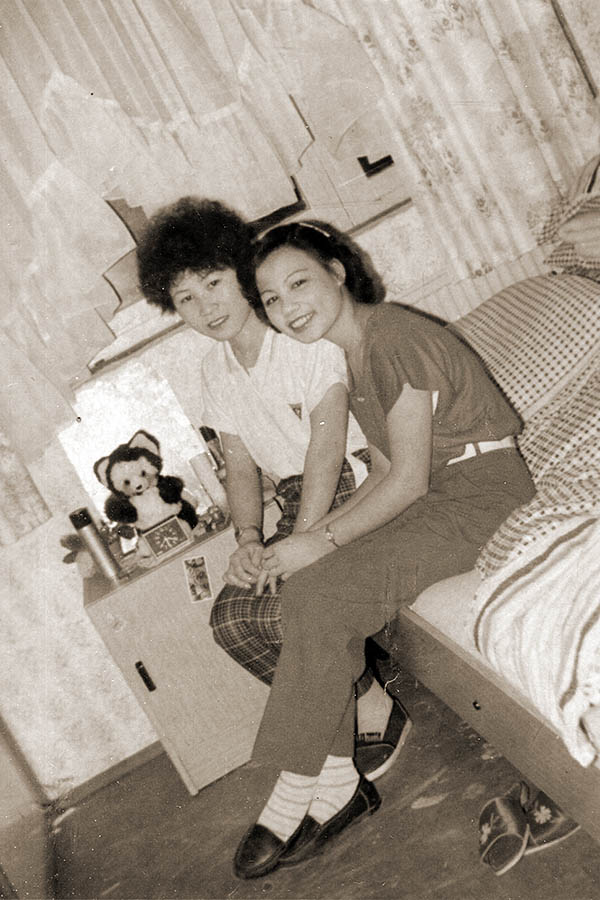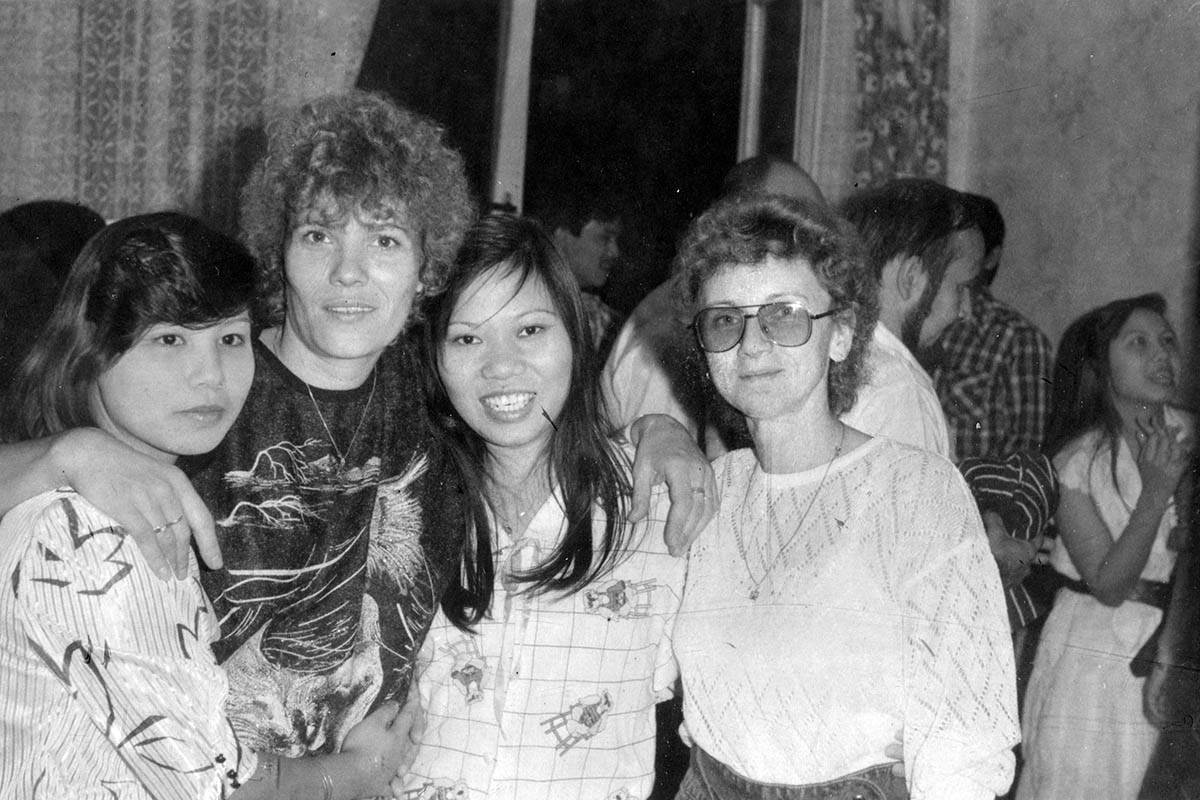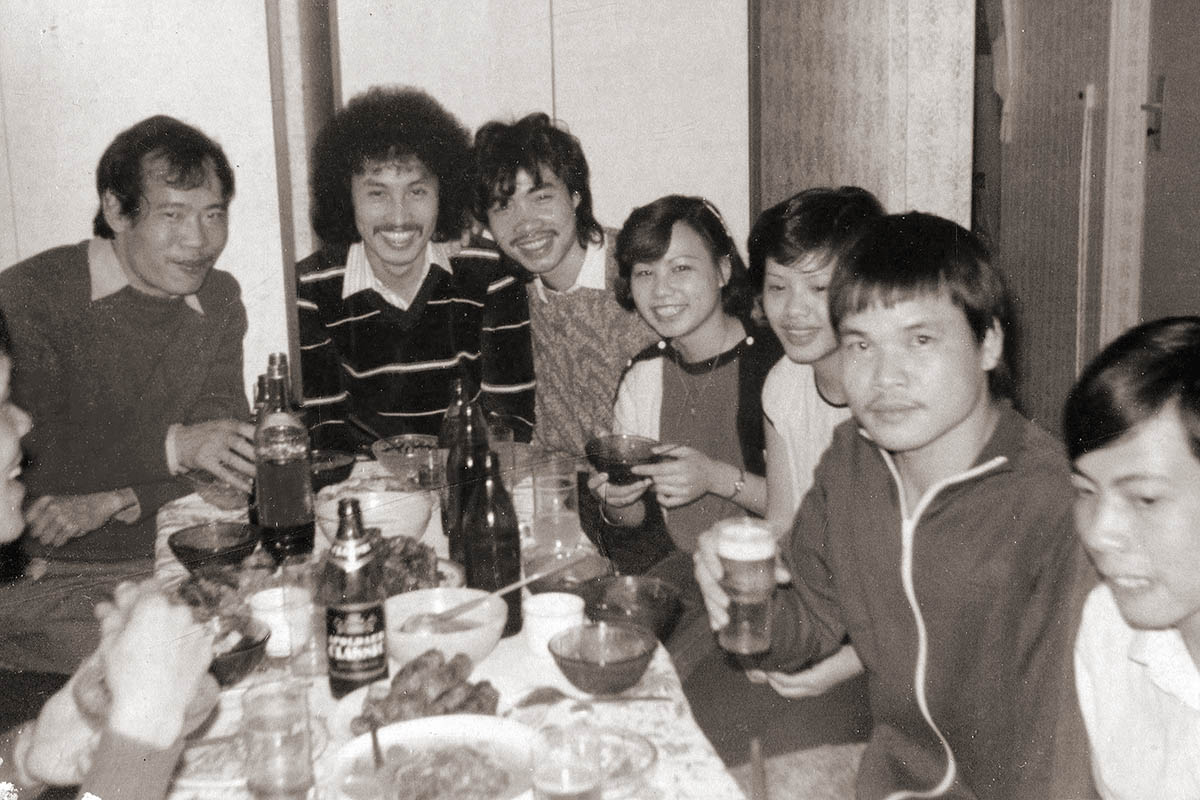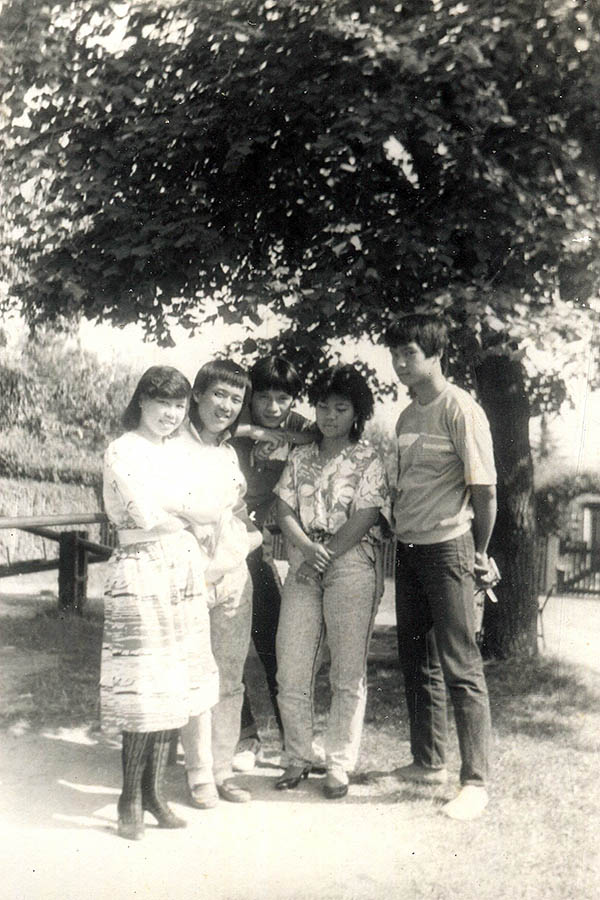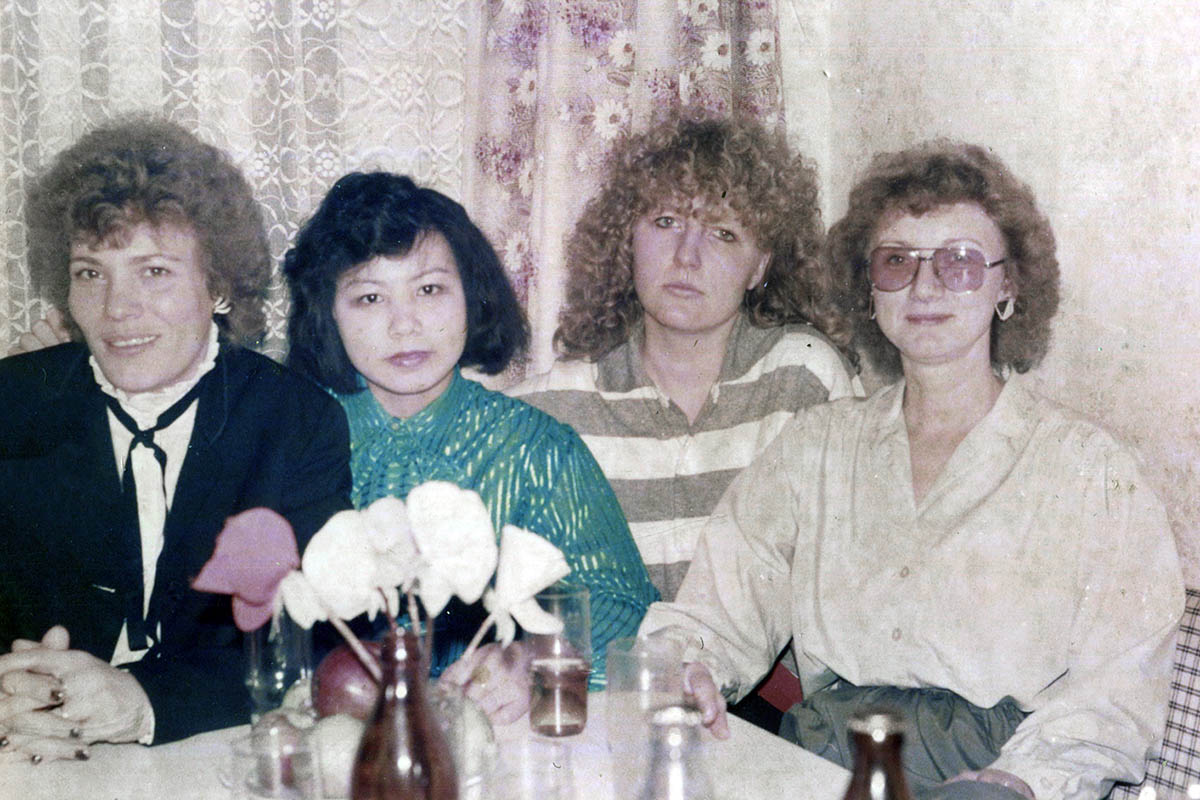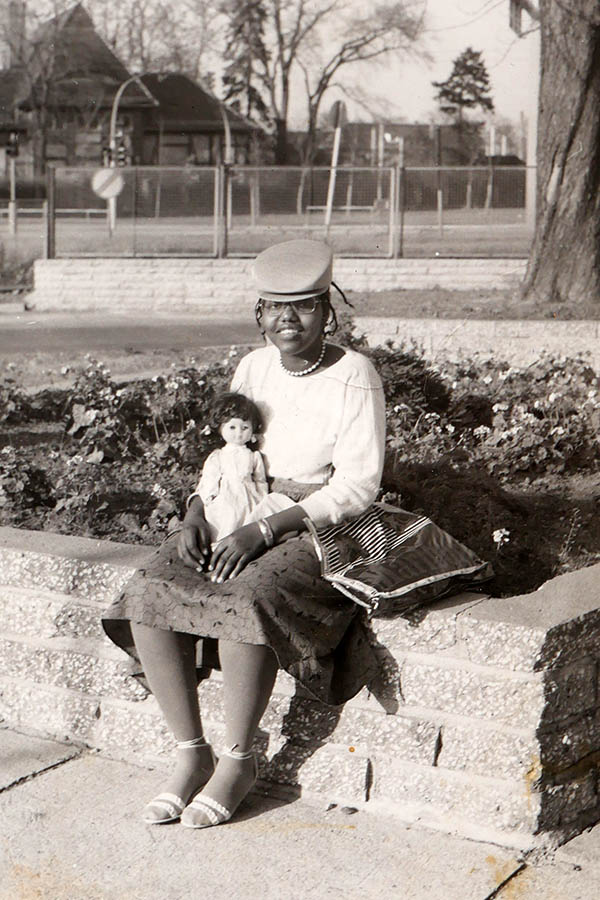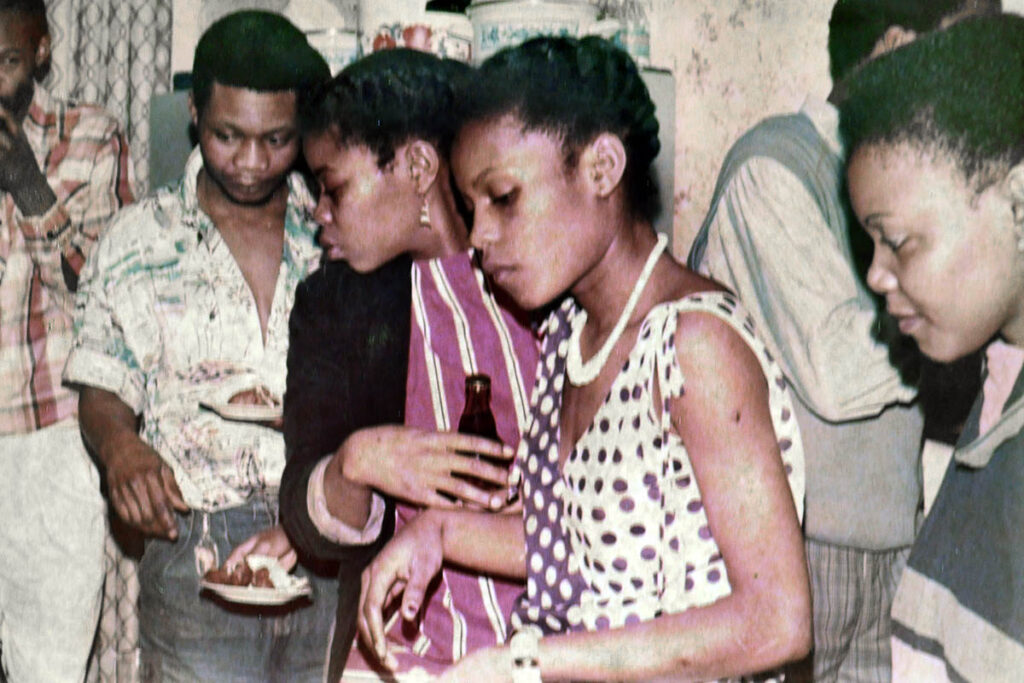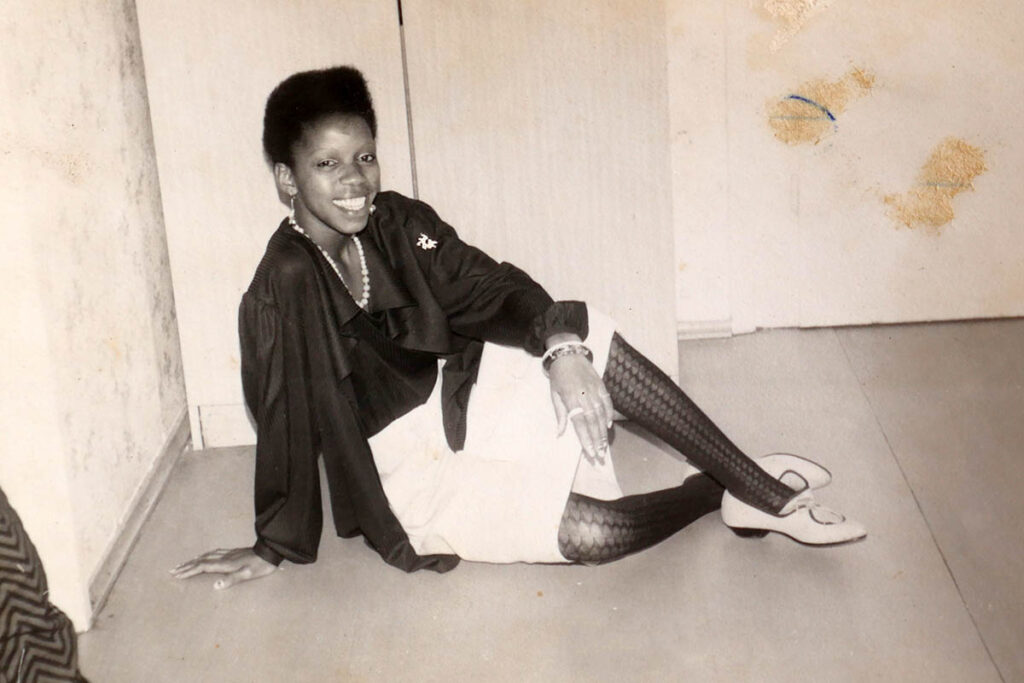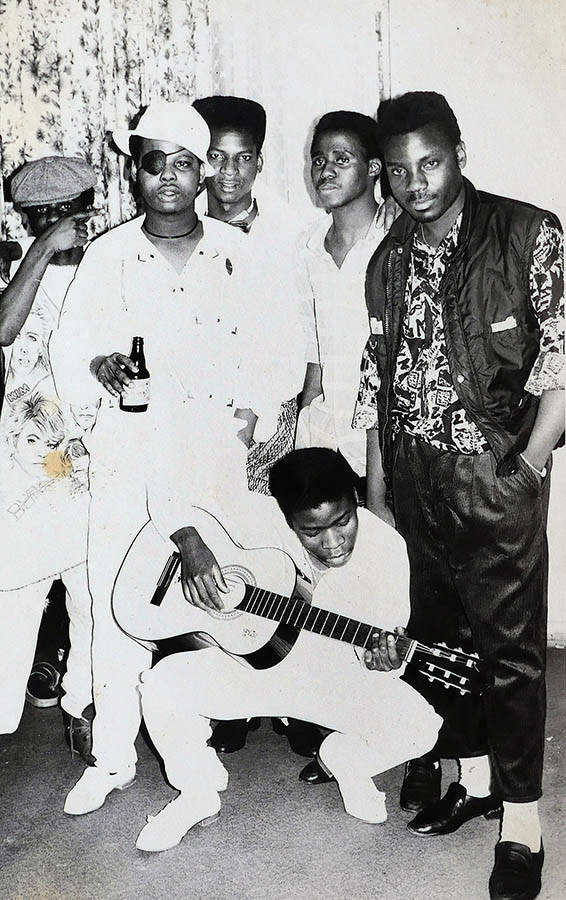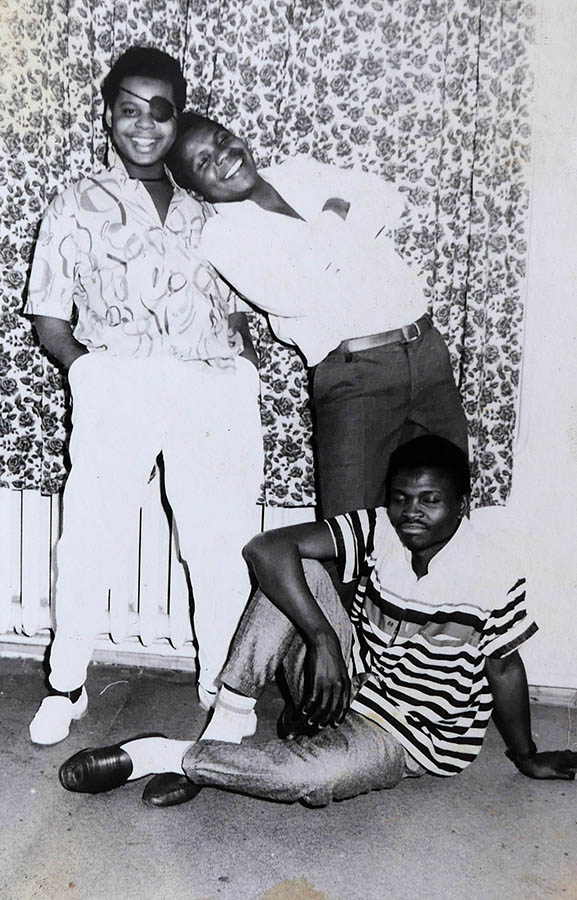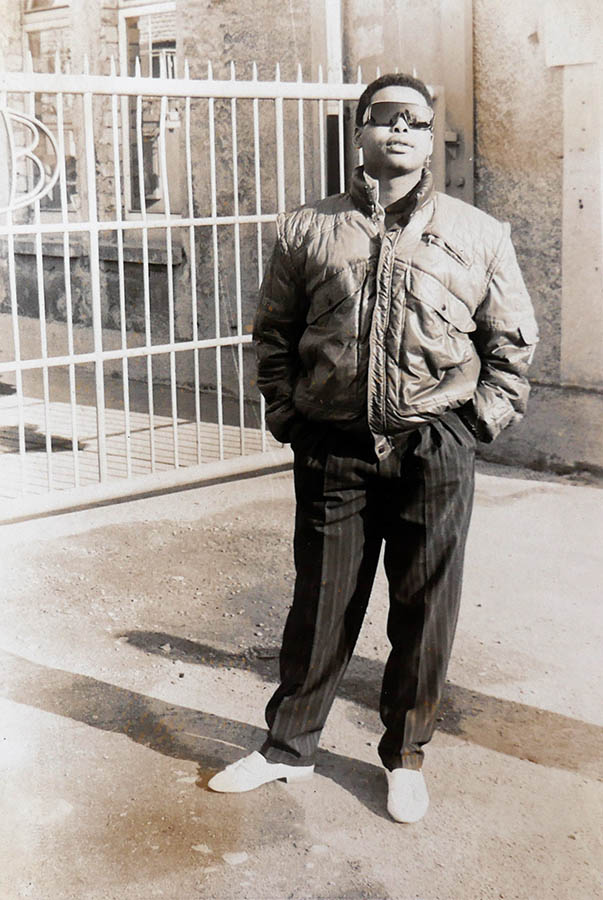Trần Thanh Hương
In 1987, at the age of eighteen, Trần Thanh Hương arrives in Apolda. She often feels homesick. However, the Vietnamese community and two German colleagues help her to cope. With the fall of the Berlin Wall, her work contract ends prematurely.
The Group
Trần Thanh Hương and her colleagues come to Apolda to work in the textile industry immediately after graduating from school in October 1987. It rains a lot and is very cold. It is their first time away from home and they are feeling very insecure. In the five-story residential home, seven of them move into a three-room apartment. Two hundred Vietnamese migrant workers, most of them young women, live in the building. Two Vietnamese men, who have been living in Apolda for some time, help Hương and her group to settle in. During an outing, they take a photo to commemorate their arrival.
Trần Thanh Hương (third from right) with the other new arrivals and the young Vietnamese men who welcome them. The photo is taken shortly after their arrival by a Vietnamese colleague.
We girls spent our time together. We even used to drink when we were feeling down.
Trần Thanh Hương, Hanoi 2021
Getting there
Three months German language courses are the initial program for the young Vietnamese. Although they have just graduated from school in Vietnam, they have difficulties in learning the language. A glimmer of hope during this time are the school kids from the neighborhood. “After school, we invited them to our place, which was fun. And it also helped against being homesick.” After finishing the German course, it’s off to the textile factory.
Trần Thanh Hương talks avout her colleagues, birthday parties, and the music they listened to.
On their own
The young women work in three different publicly owned knitting and hosiery factories in three shifts. The first shift starts at 5 a.m. on the large industrial machines. “Most of the female German colleagues were already a bit older or even middle-aged, and we called them Mama. The others we called ›colleagues‹.”
After work, the young Vietnamese spend most of their time among themselves. They cook, listen to music, search for food they like, and have parties. Therefore friends and relatives visit them from various East German cities. These visits are important and help to combat the loneliness. Likewise Trần Thanh Hương travels around East Germany to visit other Vietnamese. By now, some of them have cameras, take pictures and share prints of their pictures with their colleagues/each other.
Trần Thanh Hương describes the significance of the Vietnamese community.
New clothes, new girlfriends
Trần Thanh Hương and her roommates settle in. Not only do they listen to music popular in the GDR, but also increasingly adapt their dresses and hairdos to the East German style. A major role play two German women who befriend them. They know each other from working in the same factory and in the same shift. The two German women live together without being married . There are many rumors about them. For Hương and other Vietnamese women, they are important attachment figures. They party together and spend a lot of leisure time together.
We listened to ABBA and Modern Talking.
Trần Thanh Hương, Hanoi 2021
Trần Thanh Hương (far left) at a birthday party in her apartment, together with a Vietnamese and two German colleagues, Apolda 1988.
In the factory
Trần Thanh Hương earns between 500 and 700 marks a month, depending on the shift schedule and work performance. When there is not enough work material, the days are accounted for as vacation days. Thus wage losses shall be avoided. Hương needs most of the wage for her livelihood in the GDR. She can only set aside a little sum for her family in Vietnam. By working in the textile industry, Hương also establishes relationships with German women, especially her superiors. She invites them to private parties.
Trần Thanh Hương on her (female) friends and colleagues.
I never thought I would return so soon and that it would end like this.
Trần Thanh Hương, Hanoi 2021
Out of work
Trần Thanh Hương experiences the German political transition as a period of insecurity. She and her female colleagues still go to work, they notice the changes around them, but do not receive any information. They are encouraged to return to Vietnam. Hương has a five-year employment contract. Her contract runs for over two more years. “When they suggested we should go back to our country of origin, it saddened us. While thinking about the different circumstances, we tried to figure out how to respond.” In 1990, Hương and her colleagues are laid off. For three months, she receives 500 marks a month as unemployment benefits. Then she is expected to fly back to Vietnam with a small severance package. At first, this is out of the question for her. But Apolda holds no perspective for her.
The photo of Trần Thanh Hương’s birthday in January 1990. “At that time, we looked so sad in almost all of the photos.”
Illegal(ized)
When the unemployment benefits cease, Trần Thanh Hương moves to Berlin, where she tries to earn money by selling cigarettes. Over and over again policemen confiscate her goods. She makes big losses. On October 15, 1990, she flies back to Vietnam with a settlement of 3,000 German marks.
When asked about her best memory of her time in the GDR, Hương says: “What I miss most is the comfortable life, the good climate and the good social security. I felt safe and secure.”
Trần Thanh Hương describes how the fall of the Wall changed her life.
Today Trần Thanh Hương lives in Hanoi.
Credits:
Prof. Dr. Phạm Quang Minh conducted the interviewin Hanoi in 2021 .
Text: Isabel Enzenbach
Research and research protocol photos: Trần Bảo Ngọc Anh
Video edting concept: Isabel Enzenbach

